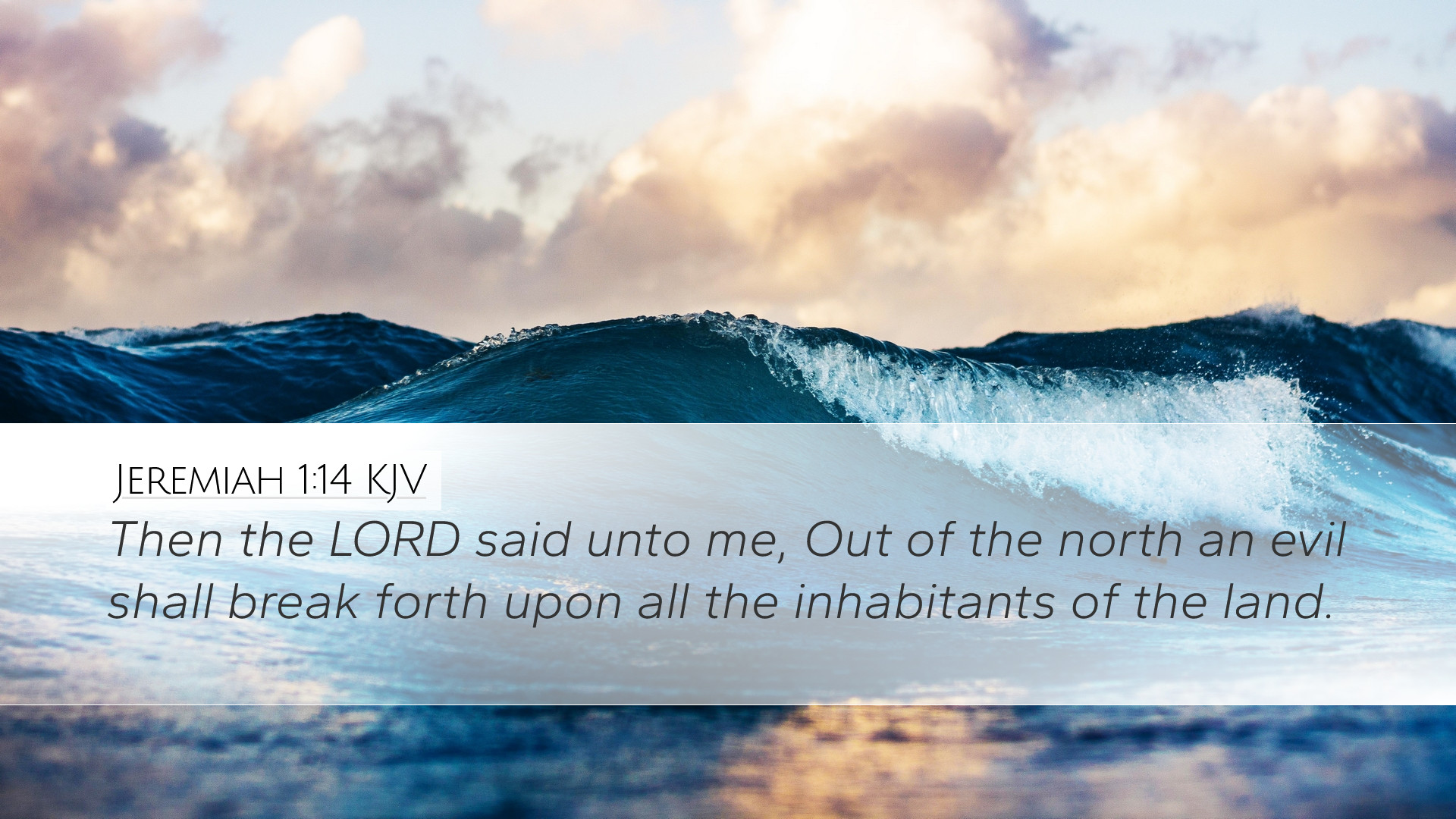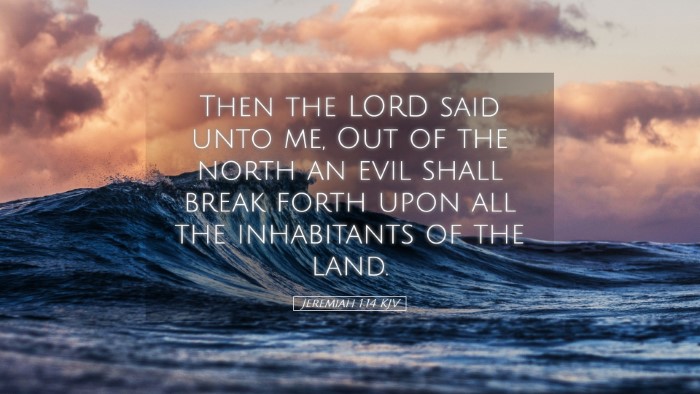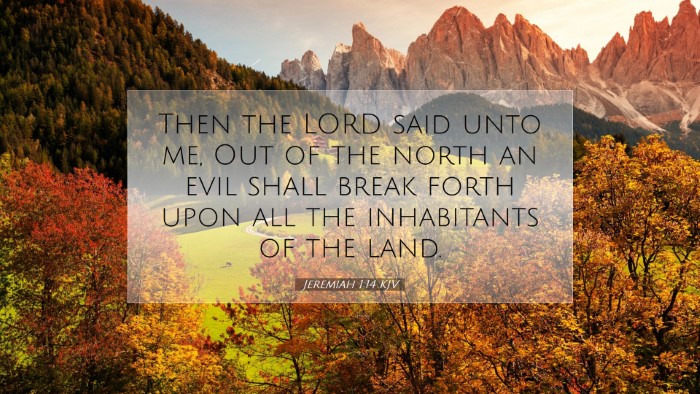Commentary on Jeremiah 1:14
In Jeremiah 1:14, we find the profound declaration of God's will regarding the impending judgment upon Judah as articulated through the prophet Jeremiah. This verse reads:
"Then the Lord said to me: 'Out of the north calamity shall break forth on all the inhabitants of the land.'" (Jeremiah 1:14, NKJV)
Contextual Background
The book of Jeremiah is primarily centered on the themes of judgment and restoration, reflecting the tumultuous historical context of the late seventh to early sixth century BCE. Jeremiah, called to be a prophet during the reign of King Josiah, bore witness to the spiritual decay of Judah and the impending Babylonian invasion.
In this opening chapter, God establishes Jeremiah's prophetic ministry, assuring him of divine guidance despite the difficult task ahead. Here, the north symbolizes the direction from which God's judgment is foretold; Babylon will rise as a tool in God's sovereign hand to execute justice.
Theological Insights
This verse encapsulates several critical theological themes:
- The Sovereignty of God: The mention of calamity from the north emphasizes that God is in control of historical events, using foreign powers to accomplish His purposes.
- The Certainty of Judgment: Jeremiah 1:14 stands as a forewarning of impending doom, highlighting God's holiness and justice. The calamity, predicted to come upon the inhabitants of the land as a direct consequence of their unfaithfulness, underscores God's unwavering commitment to righteousness.
- The Role of the Prophet: Jeremiah’s role as a prophet is vital. His mission involves not only delivering hard truths but also calling the people back to faithfulness and repentance.
Commentary Excerpts
Insights from select public domain commentators provide depth to our understanding:
Matthew Henry
Henry discusses the significance of God's words to Jeremiah, emphasizing the divine source of Jeremiah's message. He notes that the doom forecasted by the prophet is not an arbitrary punishment but a measured response to the persistent idolatry and sin of Judah. He states, "The prophet's commission included the ministry of both denunciation and hope, for, even amidst judgment, God aims to bring His people back to Him." Henry highlights the importance of recognizing God’s active role in earthly affairs, as calamity is divinely ordained for a specific purpose.
Albert Barnes
Barnes points out that the mention of 'the north' in this verse specifically indicates where the invaders would come from, drawing connections to the Assyrian and Babylonian threats facing Judah. He reflects on the geopolitical implications of this prophecy and underscores its unavoidability: "The judgments of the Almighty cannot be escaped; the nation must prepare for the consequences of its actions." He calls attention to the moral lesson that the consequences of sin are inevitable and serve as a divine warning to nations and individuals alike.
Adam Clarke
Clarke offers a perspective on the metaphorical implications of 'calamity' breaking forth, suggesting that it serves not just as physical destruction but also spiritual desolation. He elaborates that God’s intentions behind this calamity are not purely punitive but serve as a catalyst for spiritual awakening and moral correction among the people. Clarke asserts that in recognizing their plight, the people of Judah would have an opportunity to repent and turn back to God, thereby reflecting God’s desire for restoration rather than mere punishment.
Practical Applications
For today’s readers, particularly pastors, theologians, and students, this verse has profound implications for contemporary faith practice:
- Call to Repentance: Just as Jeremiah was charged with proclaiming God's judgment, modern followers of Christ are called to speak truthfully about sin and its consequences, urging society towards repentance and restoration.
- Understanding God’s Sovereignty: In times of crisis, believers are reminded that God is sovereign over all nations and events. Trusting in God's overarching control provides comfort amid chaos.
- Role of the Church: The church is called to be a prophetic voice, both warning of the consequences of straying from God's path and extending hope for redemption through Jesus Christ.
Conclusion
Jeremiah 1:14 serves as a poignant reminder of God’s role as both judge and redeemer. Through this prophetic message, we are called to examine our lives, our communities, and our nations in light of God's holiness and justice. In the path of impending calamity, there lies an invitation for repentance, reconciliation, and ultimately, restoration through God's grace.


